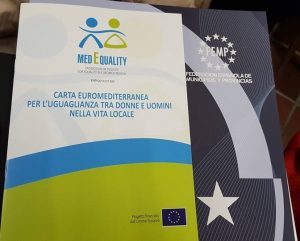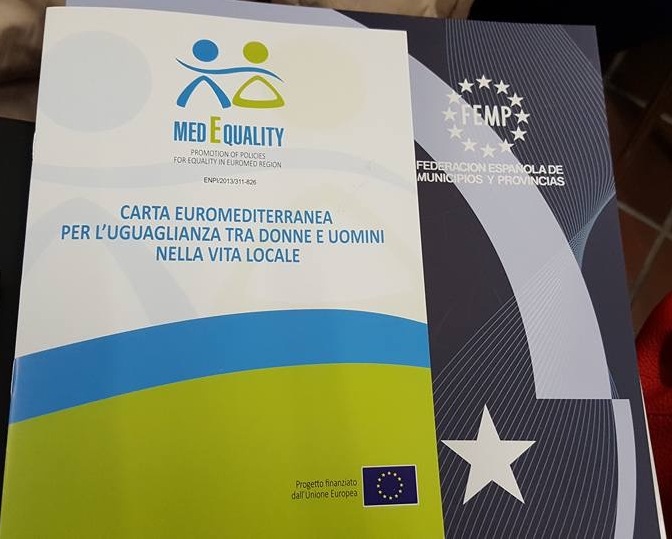 “The Euro-Mediterranean Charter for equality between women and men in local life and the protection of rights and against all discrimination” is the theme of the conference organized by Ciscos Ugl in Palermo.
“The Euro-Mediterranean Charter for equality between women and men in local life and the protection of rights and against all discrimination” is the theme of the conference organized by Ciscos Ugl in Palermo.
The meeting was created to present the Authorities and local institutions an important instrument such as the equal opportunities and respect for human values. The conference will be held Saturday, January 28, starting at 10 am, at the Sala delle Lapidi, Palazzo delle Aquile. The meeting was created to present to the Authorities and local institutions the instrument necessary as illustrated in detail in a conference in Madrid the importance on the issue of equal opportunities and respect for human values.
The conference will take place Saturday, January 28, at 10 am, at the Sala delle Lapidi, Palazzo delle Aquile.
Partecipants in the debate: the Hon. Renata Polverini, Vice President of the Labor Commission in the Chamber of Deputies, Leoluca Orlando, mayor of Palermo, the Hon. Carmelo Motta, Coppem General Secretary, Stefano Cetica, Enas Ugl President, Rita Vinci, city councilor, Adly A. Hussein, President of the Cairo Court of Appeal and Coppem Vice President (Permanent Committee for Euro Mediterranean Partnership), Alessandro Bellavista, University of Palermo – Director of the Department of Political Sciences and International Relations, Francesca Bagni Cipriani, Ministry of Labor and Social Policies – National Equal Adviser, Nino D’Asero, National Vice President of Aicree (Italian Association of Council of Municipalities and Regions of Europe). The conclusions will go to Francesco Paolo Capone, general secretary of the UGL and to Patrizia Conte, President Ciscos Ugl. The event will be moderated by Maria Concetta Cefalù, delegate Ciscos Ugl – Sicily.
We remind you that the Ciscos Ugl is among the signatories of this important instrument for the protection of rights and values for every human being (the agreement was signed in Madrid last October). The principle and fundamental rights are based on equality between women and men. The female contribution is essential to local development and institutions. The local and regional authorities have the task of encouraging social and political conditions aimed at the concrete acquisition de jure and de facto of the right to equality. To ensure equality between women and men, multiple discrimination and obstacles must be taken into account such as the equal participation of women and men in the decision-making process which is a fundamental element of democratic societies; eradication of sexual stereotypes is essential for achieving equality between women and men. The women plays an important role in conflict resolution, peace processes and reconstruction. The gender issues must be assumed by the institutions as a transversal element of every administrative and political activity. Also important is the chapter dedicated to the security and protection of women and minors who are refugees (article 18 – Security policies). Every form of abuse or exploitation against these persons is avoided and their rightful protection, acceptance and integration are focused exclusively to them. Fundamental values that in respect of dignity and respect for human beings must always be present. A mission in which Ciscos Ugl firmly believes and for this purpose, signs is the commitment to guarantee the respect and the implementation of the principle of equal opportunities in its territory is a priority. The UGL organization is ready and will always be to support this battle. This project, funded by the European Union, was implemented thanks to the presence of other partners such as Coppem (Permanent Committee for Euro-Mediterranean Partnership of Local and Regional Authorities), Facm (Algerian Forum for Citizenship and Modernity), Lca (Association of Local Governments – Malta), Apla (Association of Local Authorities – Palestine).
“Ciscos Ugl – specified Patrizia Conte, President of Ciscos Ugl in an interview with La Metasociale – laid the foundations for new European and international collaborations which purpose is to develop projects and international collaboration. It also laid the foundations for future partnership agreements with the major European and non-European institutions which aimed at the participation to European tenders regarding professional training courses in the field of international cooperation “.

